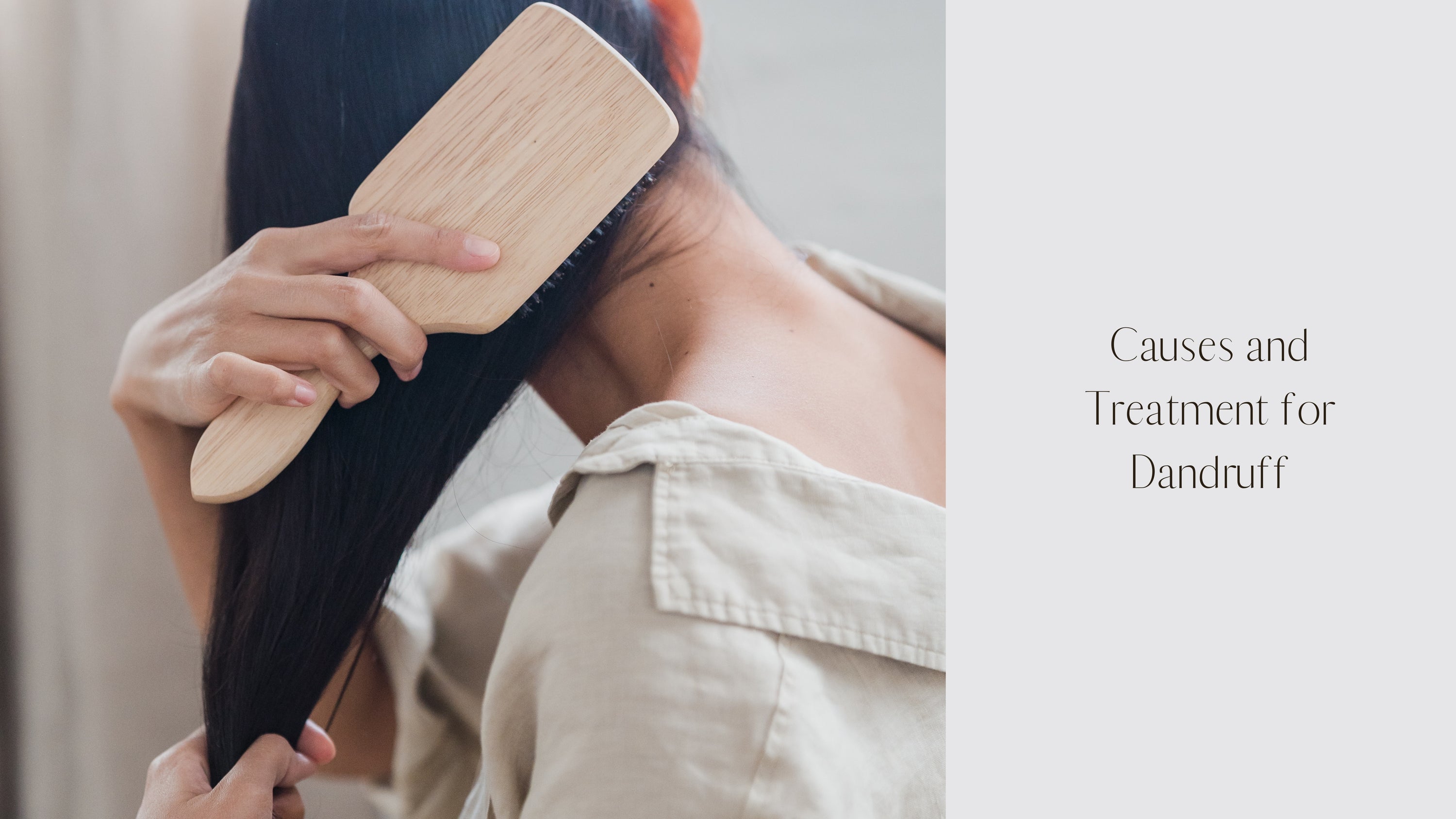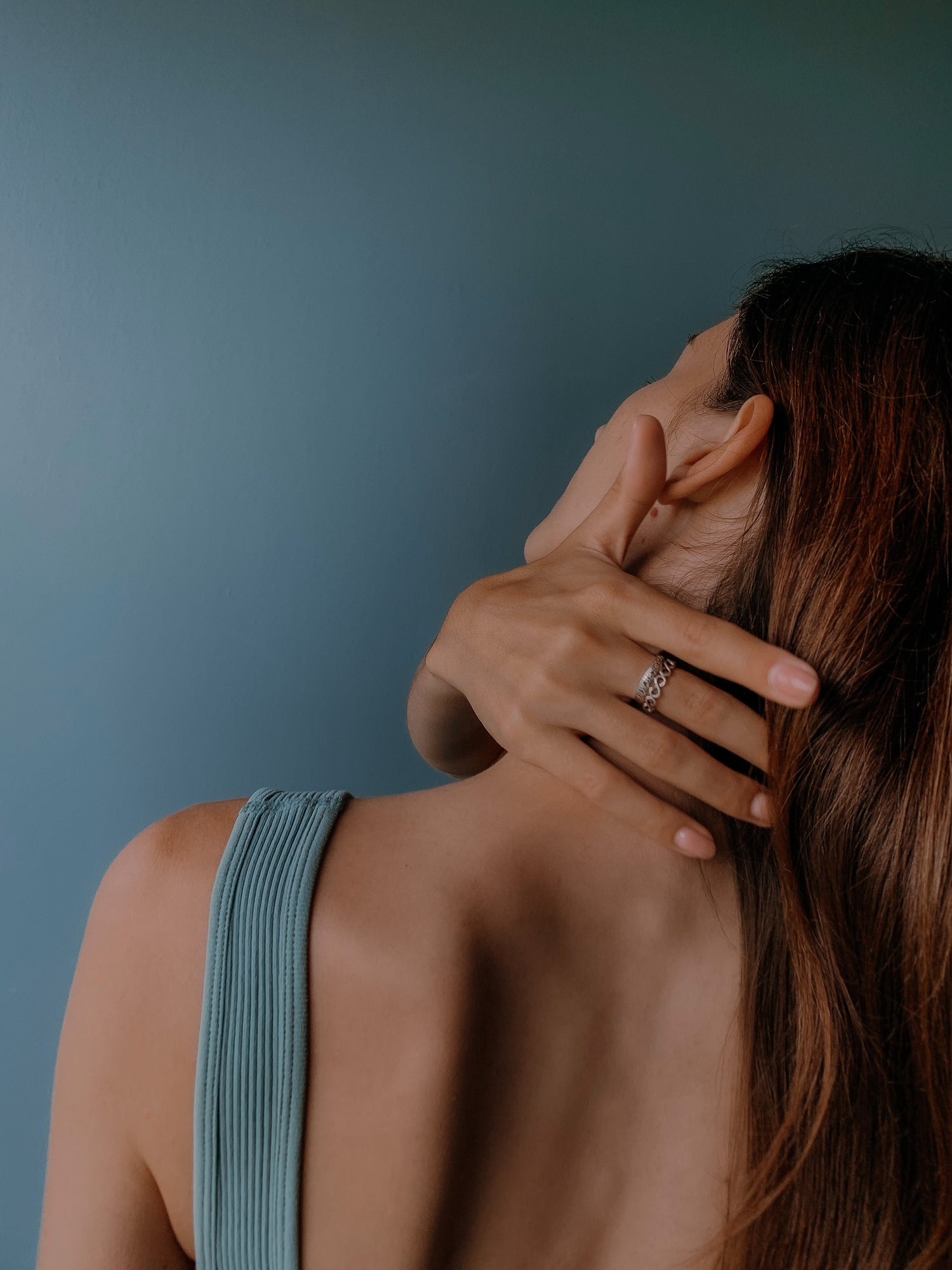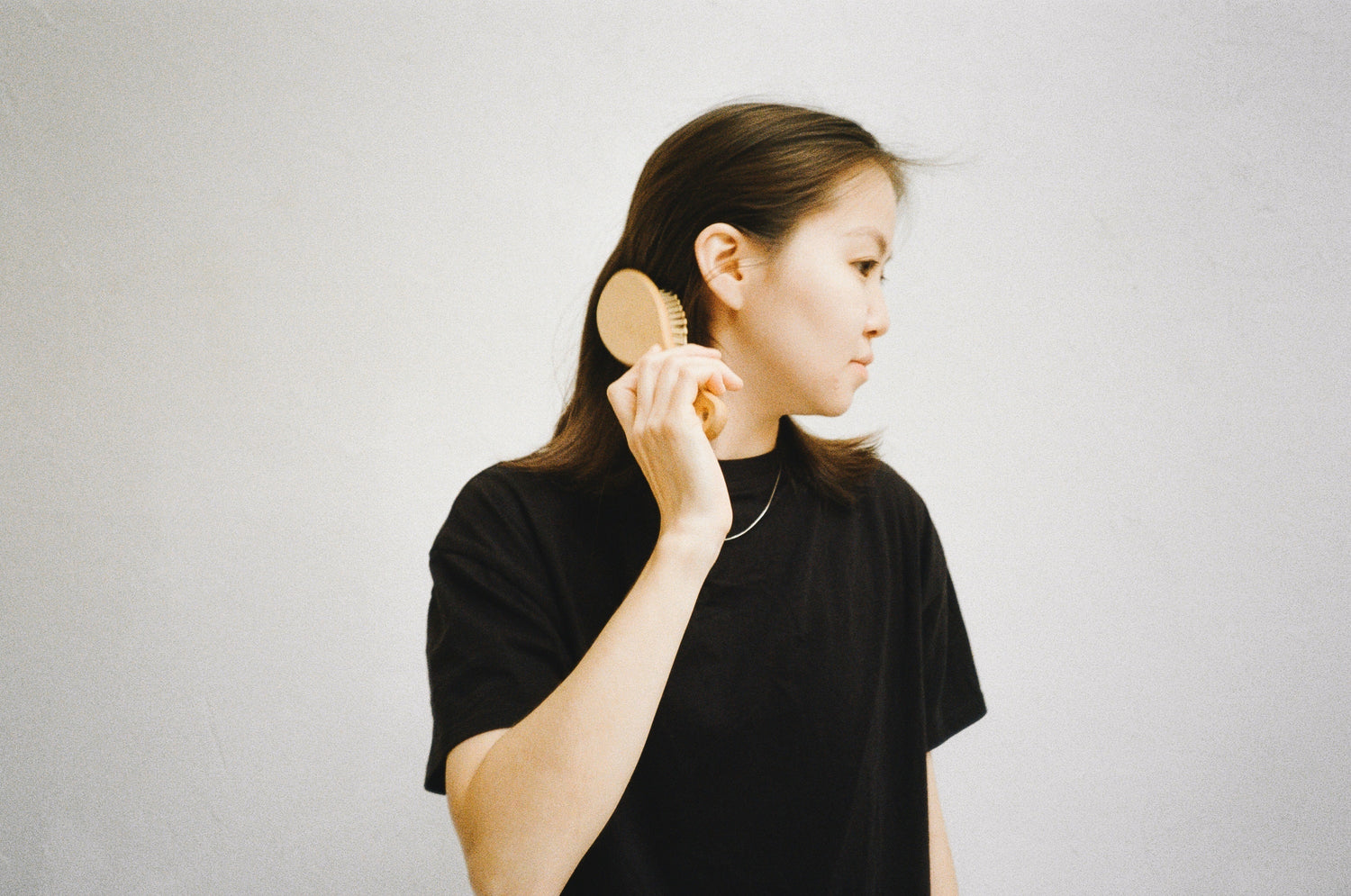Do you find yourself scrambling for the nearest hat as soon as winter sets in, or pulling a beanie low over your ears to hide a flaky scalp? Many people who experience dandruff find that their symptoms worsen in the cold weather. But the good news is that this common condition is easily treated.
If an itchy scalp and dry, flaking skin is driving you nuts, here’s what you can do to understand and treat the problem, so that you can pack those hats away for good!
What is dandruff?
Dandruff is a very common inflammatory scalp condition that is experienced by up to half of all adults. Dandruff causes dead flakes of skin from the scalp to appear on the hair, and it can cause itching and, in some cases, tenderness of the scalp. While the symptom can be embarrassing, the condition is easy to treat.
What causes dandruff?
Doctors and scientists aren’t entirely sure what causes dandruff and why some people are more prone to it than others, but they do agree that people with yeast sensitivities are at slightly higher risk of having dandruff. However, the symptoms of dandruff can also be caused by dry scalp, which may be the result of:
- Dry skin. Those with dry skin often experience dandruff more often than others, and their symptoms include small flakes of dandruff that are not oily.
- Seborrhoeic dermatitis (irritated, oily skin). People with this condition are highly prone to dandruff, as the condition affects many areas of the skin, including the eyebrows, backs of the ears, sides of the nose and the breastbone, as well as the scalp. Often, sufferers experience red, greasy skin covered with white or yellow scales.
- Insufficient brushing of hair. People who don’t brush or comb their hair regularly are at a slightly higher risk of having dandruff, as brushing can aid in the shedding of dead skin which can build up and cause dandruff.
- Certain skin conditions. People who suffer from psoriasis, eczema and other skin disorders are far more prone to dandruff those others.
- Certain illnesses. Adults with Parkinson’s disease and certain other neurological illnesses tend to be more prone to conditions such as seborrhoeic dermatitis and dandruff. Moreover, those recovering from heart attacks and strokes, and those with weak immune systems may experience the symptoms of dandruff.
- Bad reaction to hair or skincare products. Some people have sensitivities to hair and skincare products, which may result in a red, itchy, scaly scalp. Some experts believe that shampooing too often may lead to dandruff as this can irritate the scalp. A few believe that too little shampooing can also lead to the condition, but this is widely disputed.
- Malassezia. This is a fungus that lives on the scalp, and it feeds on the oils that are secreted by the hair follicles. For most people it causes no problems, but in some, its activities irritate the scalp. This causes the scalp to produce extra skin cells, and when these superfluous cells die and begin to fall off, they may look like dandruff.
- Diet. Some hair experts believe that people who consume insufficient amounts of zinc, B vitamins and healthy fats are more prone to dandruff.
- Psychological stress. Stress is linked to a wide range of skin conditions, including dandruff.
- HIV. Studies have found that over 10% of HIV-positive individuals suffer from seborrhoeic dermatitis which can lead to dandruff.
Why is dandruff worse in winter?
People often notice that the symptoms of dandruff worsen in winter and improve in summer. Although scientists aren’t sure why this is, it may be due to the fact that UVA light from the sun can counteract the effects of yeast. Some doctors also believe that during the winter, the skin is drier due to exposure to more extreme temperatures, such as colder outside air and overheated rooms, which can exacerbate a dry scalp and itchy, flaking skin.
How can I treat dandruff?
First, you need to know whether you’re suffering from actual dandruff or simply dry skin. Visit a dermatologist or hair expert to determine whether you’re experiencing a flaky, itching scalp caused by dandruff, or whether your symptoms are the result of dry skin, stress, illness or the use of certain medications.
Once you know the root cause of your flaky scalp, you can treat it with the right products. For dandruff, choose shampoos that contain an antifungal agent or zinc pyrithione, or products like coal tar, selenium sulphide or salicylic acid. If your symptoms are caused by dry scalp, speak your dermatologist, doctor or hair specialist about a good quality moisturising product that can help to alleviate the symptoms.
An instant solution to dandruff
If you’re still waiting for your anti-dandruff products to work their magic – or you simply wish to show off a Hollywood-style head of hair without the fuss – there’s no better option than natural-looking human hair extensions. These gorgeous clip-in solutions will give you an instant hair makeover with little effort, zero damage and, best of all, zero dandruff! Available in a range of shades to blend seamlessly with your natural colour, they’re the perfect solution for everyday use or special occasions.






